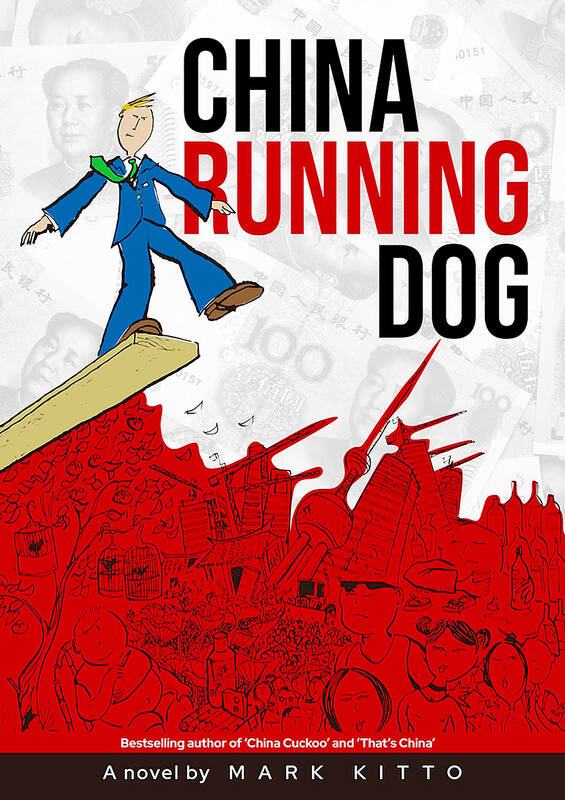Shanghai’s golden age spanned the 1920s and 1930s, when the city flourished as a commercial and cultural hub in Asia, attracting tens of thousands of Westerners — the Shanghailanders. The city was a genuine melting pot, with East and West colliding to spawn fantastic fusions — shidaiqu (時代曲), a mash-up of big band jazz and Chinese folk melodies and shikumen (石庫門), which combined Shanghai lane house (longtang, 弄堂) architecture with Western town house elements.
Architecture was also key to Shanghai’s second coming in the 1990s and 2000s, when the development of the Lujiazui (陸家嘴) financial district in Pudong became a symbol of China’s emergence as an economic powerhouse. As the skyscrapers sprung up, forming a distorted mirror of the Bund’s faded glory across the river, a new generation of Shanghailanders prepared to descend on the city.
Any foreigner who was in Shanghai — or China in general — in those heady days has tales to tell. This was the Hu Jintao (胡錦濤) era when foreigners of all shapes and sizes were ushered in with open arms. Or so they thought. Those of us whose time in Taiwan corresponded with the period but didn’t directly experience this second golden era have likely heard how things were: how everything seemed fresh and exciting; how there was obvious corruption but, with it, boundless opportunity.

“Shanghai in the year 2000. It was nuts,” narrator Johnny Trent tells us. “I was in the right place at the right time, and I was becoming somebody.”
This desire to be “somebody” or at least somebody different will be familiar to many. Who hasn’t heard the line that Westerners in Taiwan are “losers” who couldn’t make it in their own countries? In some cases, we’ve probably thought it of others or, in more self-reflective moments, ourselves.
In Trent’s case, it gradually becomes clear that he is escaping something more concrete and sinister — a specter of his past self that partly explains the sense of dislocation and insecurity that plagues him. Again, any long-term ex-pat has probably encountered such individuals — some of whom commendably manage, to reinvent themselves, others who plumb greater depths of self-destruction. Going incognito in terra incognita, after all — especially in a tolerant or permissive society — might simply exacerbate one’s defects.
TABULA RASA
This is certainly not true of Johnny — a decent bloke who made a foolish mistake as a young man, for which he is genuinely remorseful. But, as the plot crescendos toward a catastrophic denouement, there’s a sense of expiation that — enraged as he is by the person who has precipitated it — resigns Trent to his role in and punishment for the debacle.
At the outset, he is enjoying his re-invention as a respectable entrepreneur who, despite having been in the country just a few years himself, plays the sage China hand, doling out pearls of wisdom to newbies.
“Shanghai isn’t even a blank piece of paper,” Trent tells newcomer Felix Fawcett-Smith, the novel’s antihero, shortly after they first meet. “There’s no paper, no precedents, no rules. We’re never going to get an opportunity like this again.”
All it takes, Trent emphasizes, is to “get involved.” Uttered as throwaway advice, these innocuous words set in motion a chain of events that sees Felix embroiled in a scandal that eventually reaches to the upper echelons of the Chinese Communist Party, making international headlines. The incident that brings everything crashing down hinges on a land rights row of the type that was particularly common during the Hu era — the Wukan (烏坎事件) protests of 2011 being the standout example.
BREWING RESENTMENT
While Trent attempts to convince the reader, his trusted confidante Charlie Thurrold and most of all himself, that he cannot be held responsible for what transpires, his guilt is palpable. The sense that he played a pivotal role is compounded when both Charlie, an official at the British Consulate, and Trent’s love-interest Anita are caught up in the mess with tragic consequences.
Readers will likely superimpose their own personal experiences of comparable scoundrels, blaggers and egoists on the intriguing if unsympathetic character of Fawcett-Smith. Exuding public school — “which means private school in the UK” — confidence, Felix’s insecurities manifest through nervous ticks such as the obsessive sweeping of his white-blond mop from his receding hairline and his festering ill-will toward Thurrold.
On the surface, his contempt for the aging diplomat is a generational butting of heads that, again, is a familiar theme among ex-pats: the jaded veteran versus the fresh-off-the-boat ignoramus.
A boozy blow-up between the pair is sparked by Thurrold’s observation that, rather than representing the pen of former president Deng Xiaoping (鄧小平) as he signed documents opening the door to the West, Pudong’s landmark Jinmao Tower is in fact the Little Cannon’s middle finger “directed at Shanghai’s foreign history, and you lot who think you can repeat it.”
CONVINCING PORTRAYAL
This is followed up with a warning that the head of the ominously acronymed Shanghai Land Investment Corp (SLIC), for whom Felix works, is in fact a crook.
“I would rather work for a crook who gets stuff done,” says Fawcett-Smith, “than sit around listening to a crusty old diplomat give a stupid lecture about Chinese modern history, which we’re living, making today.”
However, it soon becomes clear that the resentment comes from a much darker place, which fuels Felix’s increasingly narcissistic and irrational behavior. “Uncle Charlie,” who tries his damnedest to save the day, is just one of the victims left in the wake of Hurricane Felix.
Props to Mark Kitto — this is a thoroughly enjoyable read that convincingly conveys the environment and characters from a unique period in contemporary Chinese history. The incident that poleaxes Felix is particularly well rendered, and there are nice observations on the continued influence of class divisions between Brits abroad, though these can occasionally seem overplayed, as can the frequent poking at transatlantic divergences. The humor and imagery, which in parts is laid on thick, sometimes falls flat, too.
Given Kitto’s many years in China, the incredible diversity of his professional experience, and his own tangle with the authorities, which saw his magazine publishing business expropriated, one wonders how much of this is based on firsthand experience. Either way, this is a rollicking tale, with a bittersweet finale, that should satisfy any reader interested in the dying glory days for Westerners in China.

Late last month Philippines Foreign Affairs Secretary Theresa Lazaro told the Philippine Senate that the nation has sufficient funds to evacuate the nearly 170,000 Filipino residents in Taiwan, 84 percent of whom are migrant workers, in the event of war. Agencies have been exploring evacuation scenarios since early this year, she said. She also observed that since the Philippines has only limited ships, the government is consulting security agencies for alternatives. Filipinos are a distant third in overall migrant worker population. Indonesia has over 248,000 workers, followed by roughly 240,000 Vietnamese. It should be noted that there are another 170,000

Enter the Dragon 13 will bring Taiwan’s first taste of Dirty Boxing Sunday at Taipei Gymnasium, one highlight of a mixed-rules card blending new formats with traditional MMA. The undercard starts at 10:30am, with the main card beginning at 4pm. Tickets are NT$1,200. Dirty Boxing is a US-born ruleset popularized by fighters Mike Perry and Jon Jones as an alternative to boxing. The format has gained traction overseas, with its inaugural championship streamed free to millions on YouTube, Facebook and Instagram. Taiwan’s version allows punches and elbows with clinch striking, but bans kicks, knees and takedowns. The rules are stricter than the

“Far from being a rock or island … it turns out that the best metaphor to describe the human body is ‘sponge.’ We’re permeable,” write Rick Smith and Bruce Lourie in their book Slow Death By Rubber Duck: The Secret Danger of Everyday Things. While the permeability of our cells is key to being alive, it also means we absorb more potentially harmful substances than we realize. Studies have found a number of chemical residues in human breast milk, urine and water systems. Many of them are endocrine disruptors, which can interfere with the body’s natural hormones. “They can mimic, block

Pratas Island, or Dongsha (東沙群島) had lain off the southern coast of China for thousands of years with no one claiming it until 1908, when a Japanese merchant set up a facility there to harvest guano. The Americans, then overlords of the Philippines, disturbed to learn of Japanese expansion so close to their colony, alerted the Manchu (Qing) government. That same year the British government asked the Manchus who owned the island, which prompted the Manchu government to make a claim, according to South China Sea expert Bill Hayton. In 1909 the government of Guangdong finally got around to sending